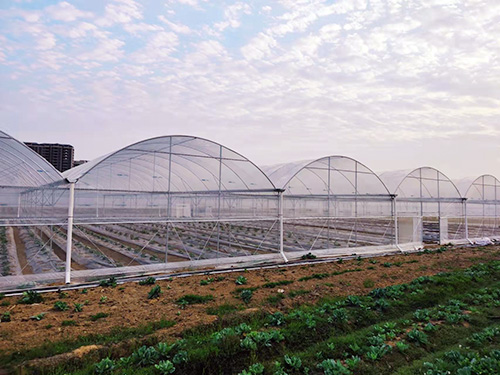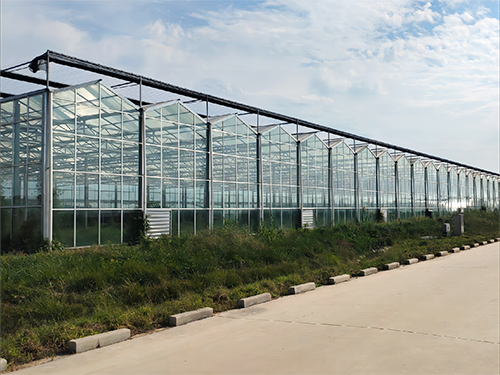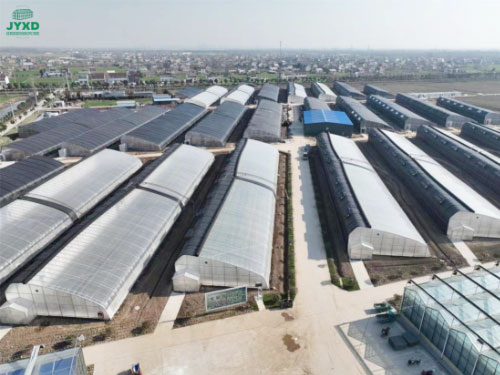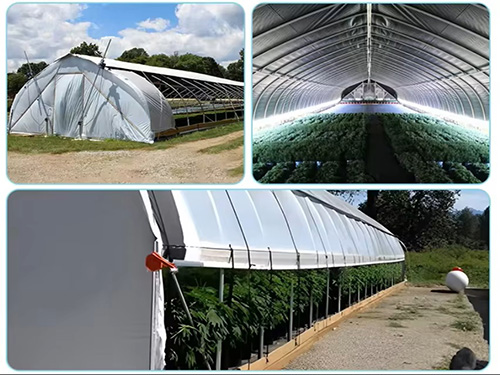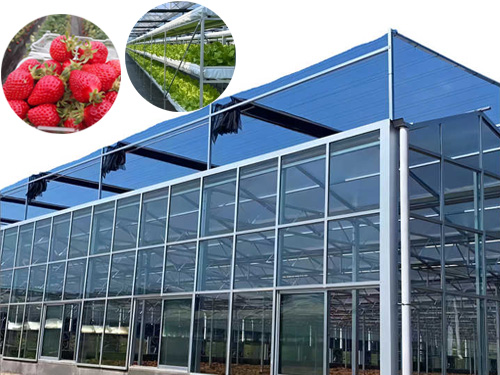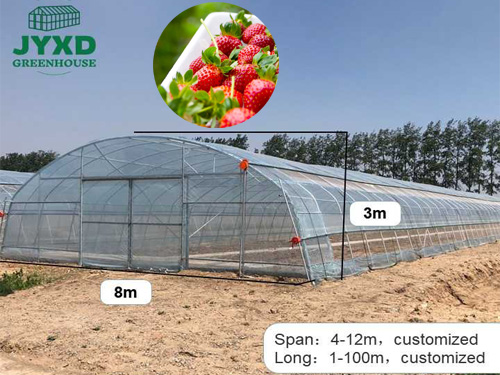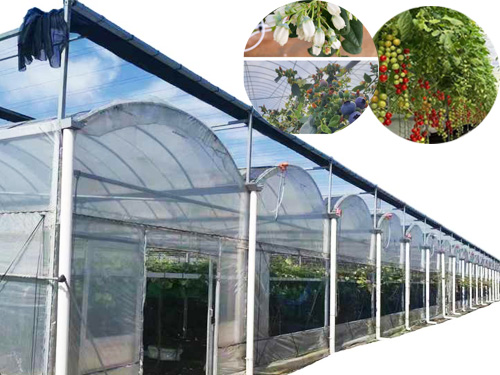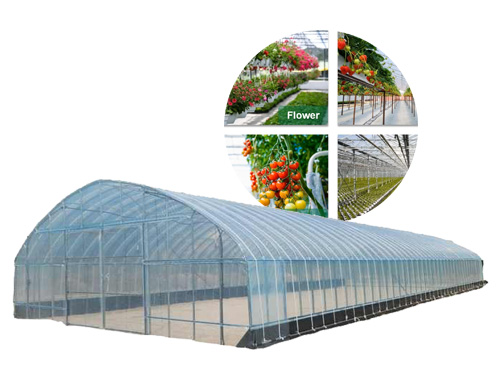NEWS DETAILS
NEWS INFORMATION
Desert Greenhouses: Utilizing Solar Energy and Desert Technology to Increase Productivity
AUTHOR:jyxd-greenhouse DATE:2025-01-01 08:49:55 HITS:62
Greenhouse cultivation in desert regions is a challenging but highly promising agricultural development direction. Factors such as high temperatures, intense sunlight, drought, saline-alkaline soils, and limited water resources pose significant challenges for growers. However, by adopting solar energy and desert-adaptive technologies, it is possible to achieve efficient cultivation in desert regions, increase productivity, and improve economic returns. This article will explore how to use solar energy and desert technology to maximize greenhouse productivity in desert areas.
Challenges Desert Greenhouses Face
1. High Temperature and Intense Sunlight
Desert regions experience year-round high temperatures and intense sunlight, which can damage crops.
2. Scarcity of Water Resources
Natural water resources are limited, making irrigation a significant challenge.
3. Dust Storm Impact
Frequent dust storms can damage greenhouse structures and affect plant growth.
4. Saline-Alkaline Soil Issues
Desert soils often contain high salt levels, which impact crop growth and yield.
5. Temperature Fluctuations
Significant temperature differences between day and night require stable temperature control technology.
Key Technologies and Design Concepts for Desert Greenhouses
1. Utilizing Solar Energy Technology
· Solar Power Systems
In desert areas, abundant sunlight allows the installation of solar panels on greenhouse roofs to power all greenhouse equipment. Using efficient photovoltaic technology enables energy self-sufficiency and reduces reliance on external power sources.
· Solar Heating and Cooling Systems
During cold nights, solar heating systems maintain stable temperatures inside the greenhouse, while cooling devices and ventilation systems help reduce heat, preventing crops from overheating.
2. Greenhouse Materials Resistant to High Temperatures and Intense Sunlight
· UV-Resistant Glass and Films
Selecting UV-resistant glass or high-durability film materials effectively protects crops from intense sunlight and UV radiation.
· Reflective Surface Design
Using reflective materials inside the greenhouse can reflect excess light, evenly distributing illumination and reducing damage to crops.
3. Efficient Irrigation Technology
· Drip Irrigation and Micro-Sprinkler Systems
Drip irrigation and micro-sprinkler systems are ideal for desert irrigation, precisely controlling water usage and significantly reducing water waste.
· Desalination Technology
In areas with extreme water scarcity, desalination equipment can convert seawater into freshwater suitable for irrigation.
· Rainwater Collection and Storage Systems
Install rainwater collection systems around the greenhouse to store collected rainwater, serving as a supplemental irrigation source.
4. Wind and Dust Protection Technology
· Robust Greenhouse Structure Design
Use high-strength frame structures, such as steel or carbon fiber, to enhance the greenhouse’s resistance to wind and dust.
· Sand Barriers and Protective Nets
Set up sand barriers, gravel protection layers, or wind screens around the greenhouse to dissipate dust storm impacts and reduce structural damage.
5. Soil Improvement Technology
· Organic Fertilizer and Composting Technology
Introduce organic fertilizers and compost to improve soil structure while reducing the impact of saline-alkaline soils on crops.
· Soil Amendments and Covering Techniques
Use soil amendments such as lime and phosphate rock to adjust soil pH. Employ crop rotation and covering techniques to effectively absorb soil salts.
Practical Strategies to Improve Productivity in Desert Greenhouses
1. Precision Crop Selection
· Drought-Tolerant and Heat-Resistant Crops
Choose crops suited for desert conditions, such as cacti, aloe vera, and drought-resistant vegetables, to boost yields.
· Mixed Planting and Crop Rotation
Use mixed planting and crop rotation techniques to improve soil fertility, reduce pest and disease risks, and increase productivity.
2. Intelligent Management Systems
· Environmental Monitoring Systems
Introduce sensors and smart data platforms to monitor greenhouse temperature, humidity, light intensity, and other parameters in real-time, automatically adjusting environmental conditions.
· Automated Irrigation and Fertilization Systems
Integrate with intelligent control systems to automate irrigation and fertilization, improving resource efficiency and reducing costs.
3. Ecological Protection and Sustainable Development
· Water Recycling Systems
Establish a water recycling system to maximize water reuse, reducing waste.
· Renewable Energy Integration
Install solar facilities and wind power equipment around the greenhouse, integrating renewable energy sources into the greenhouse system.
Conclusion
Greenhouse cultivation in desert regions can achieve increased productivity and economic benefits by leveraging solar energy, high-temperature-resistant materials, precise irrigation technologies, and intelligent management systems. Embracing sustainable development principles and ecological farming technologies enables high-yield, efficient, and environmentally friendly green farming in desert areas. If you are interested in desert greenhouse technology, contact our professional team. We offer customized solutions and technical support to help you achieve your agricultural goals.
Hebei Juyou Xinda Greenhouse Facilities Co.,Ltd.
Copyright © 2024-2025 https://www.jyxd-greenhouse.com. All Rights Reserved Hebei Juyou Xinda Greenhouse Facilities Co.,Ltd.Copyright




 Current Location:
Current Location: